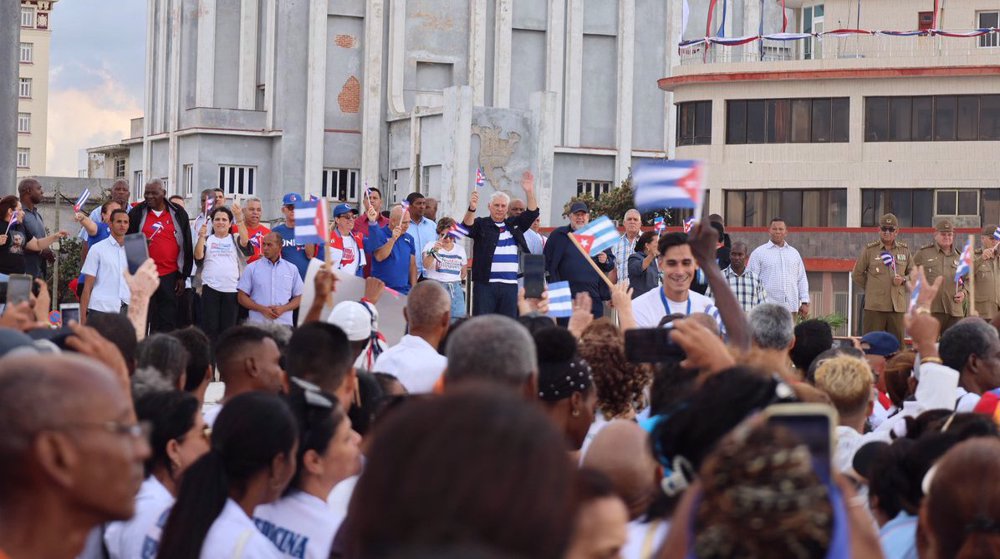Diaz-Canel sworn in as Cuba’s new president to end Castro brothers’ rule
Cuba’s new President Miguel Diaz-Canel has been sworn in as Raul Castro's successor, becoming the first leader of the Caribbean island in six decades who is not named Castro and who was born after the 1959 Cuban Revolution.
The island country’s National Assembly of People's Power swore in 57-year-old Diaz-Canel with 603 out of 604 legislators present voting for the silver-haired politician who has served as first vice president since 2013, marking a generational shift from 86-year old Castro.
Although the transition is regarded as a historic shift from an era that commenced with Fidel and Raul Castro’ revolution in 1950s, it is not expected to bring about fundamental changes to Cuba’s state-run economy and one-party system, one of the last in the world.
In his first address as the new leader of the country, Diaz-Canel, a top Cuban Communist Party stalwart, vowed to keep Cuba on the path of “revolution.” He also vowed to keep his nation on the road to economic reform.
“The mandate given by the people to this legislature is to continue the Cuban revolution at this crucial historic moment, which will be marked by what we must do to implement the economic model” put in place by Raul Castro, he said, adding, “I am here to work, not to make promises.”
Diaz-Canel, who has spent years climbing the party ranks, was nominated as the sole candidate for the presidency a day earlier and was formally appointed on Thursday to a five-year term, assuming the office a day before his birthday.
Raul, who came to power as president in 2008 when he replaced his ailing older brother Fidel, will keep significant clout as he will remain as the First Secretary of the Communist Party of Cuba until a congress slated to be held in 2021.
“Raul Castro will still preside over decisions of major importance for the present and future of the nation,” Diaz-Canel further said.
Thursday’s vote coincided with the 57th anniversary of the Bay of Pigs invasion in 1961, when the CIA tried to overthrow the leader of the 1959 revolution, Fidel Castro.
Havana has long celebrated the occasion as American imperialism's first great defeat in Latin America.
Iran: US airstrikes on Yemen war crimes, violation of international law
Yemeni armed forces down F-18 fighter jet, repel US-UK attack: Spokesman
Iran warns against US-Israeli plot to weaken Muslims, dominate region
VIDEO | Public uproar in US against Israeli regime
‘Ghost town’: 70% of Jabalia buildings destroyed by Israel
Mother’s Day: Sareh Javanmardi’s inspiring journey as Paralympic champion and mother
Russia downs over 40 Ukrainian drones as Putin vows 'destruction' on Kiev
VIDEO | Yemen: A bone in Israeli neck










 This makes it easy to access the Press TV website
This makes it easy to access the Press TV website